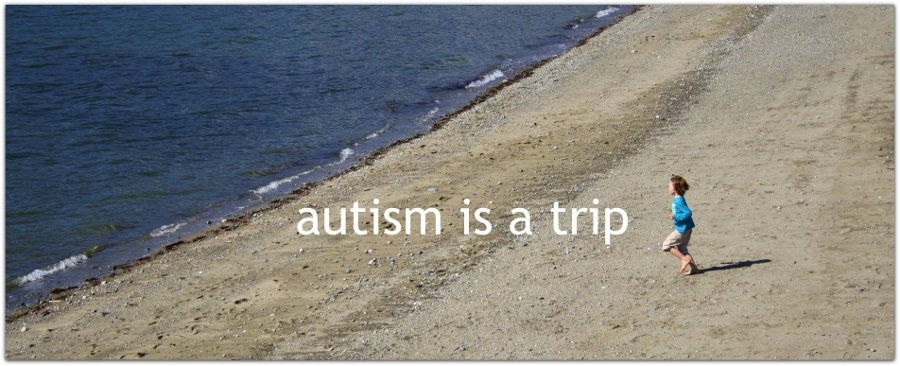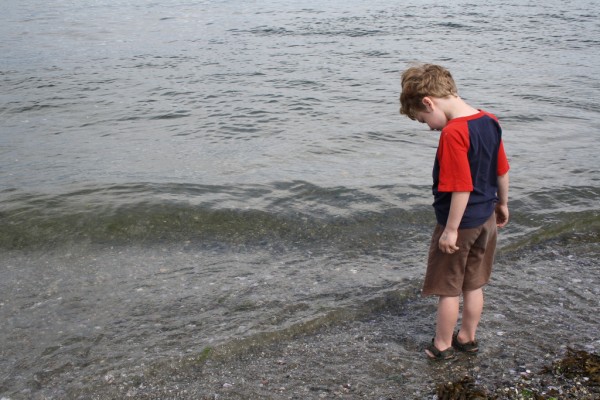
I read an article today about a “movement” that’s gaining momentum: no kids allowed. No kids in restaurants. Adults-only shopping hours at grocery stores. Children not allowed on airlines, in movie theatres, in certain outdoor parks. The comments below the article all seemed to agree, adding other locations a “no kids allowed” policy might be implemented (Disneyland???). When I finished reading, I sat down and had a good, old-fashioned anxiety attack.
It took me a bit to understand why I was having such a visceral reaction. After all, I don’t want my movie or meal ruined by a screaming child, either. I went over the article and comments in my head, and found the root of my dis-ease. The underlying message is not that adults would like to enjoy a quiet evening once in a while, it’s that children, by their very essence, are annoying and should be either controlled or kept at home.
I admit, I enjoy the “everyone pays the same price policy” at the Arclight Cinema in Los Angeles, where if you want to take your infant to the movies, you pay full price. It makes for a consistently nicer movie-going experience than most theatres. They even have 21+ shows where they sell alcohol for those who want a truly child-free experience (or just want to have some drinks with their movie). I also have no problem with restaurants that do not offer a separate child menu. Having worked in high-end restaurants for years, I know that families who enjoy finer dining experiences with their children know how to order for them without inconveniencing the kitchen (or they learn quickly). We have always taken our children to nice restaurants, and rarely order “kid meals.”
My point is the people behind the “no kids” movement seem to want a child-free life. They don’t want to encounter children anywhere it’s not “acceptable,” and want the kids they do come across to be well-behaved. Many of the comments talked about children throwing tantrums in stores, acting out in restaurants and actually being on airplanes, and the unqualified parents who allow it to happen. In their eyes, any child who isn’t smiling and polite (or asleep) is an annoyance.
I’m certain there will be a backlash against this movement across the mommy blogosphere, and endless debate about where and when children should or should not be allowed. The idea I want discussed, though, and the reason for my anxiety attack, is how autism fits into this Utopian adults-only world.
As I calmed down, I realized I had the same gut-wrenching feeling I get when Jack throws himself on the ground screeching, blocking the entrance to the grocery store (this happens pretty much every time we go there lately, for any number of reasons). It’s the same shaking inside that happens when we go to a restaurant and there’s no seating that will keep my kids contained (we like small chairs and a highchair for Kieran, or a booth where we can sit on the ends and block them in). The same tightening in my chest, clenched jaw and wringing hands I get when I even contemplate air travel.
I don’t worry about being judged. If I cared about what other people thought of me or my children when something unexpected happened I would never leave the house (although the stares at the grocery store or in the park when we try to leave and Jack melts down are pretty penetrating). What I fear is a society that has become so self-involved that it has lost sight of the importance of children, and expects them to act like something they’re not, like adults. I fear for a community that would rather me keep my child behind closed doors than have him and his not-always-stellar behaviour sully their afternoon.
And what of the mother in the grocery store dealing with a screeching child? According to the article’s commenters, I should immediately remove him when he acts out, and come back when he’s better (or better yet, leave him at home). What does that say to my child ? I’ll tell you what – it tells him a whole host of things in one action. By removing my tantruming son he learns that he can leave any situation whenever he wants by screaming. It teaches him that I don’t care about why he’s upset, just that he’s making people uncomfortable, which is more important than his needs. My child understands that his value as a person is less than his elders.
There are also other factors that may be at play – a mother with a screaming child may not have another chance to buy groceries and needs to push through. She may have a child who simply hates being in a shopping cart (yet she cannot allow him to run for various reasons). Or, she may feel the same way I do, that lessons must be learned, and sometimes it’s inconvenient. She may also have a special needs child who simply cannot follow made-up rules.
I have three young children and I understand that they can be loud sometimes. They often run, get worked-up and refuse to settle down. For these reasons and more we don’t take them a lot of places we don’t have to, like restaurants during peak business hours and movies in the evening. The times that we have to go somewhere with them that we wouldn’t ordinarily go, I break out in cold sweats until it’s over. I do not like when I can’t anticipate Jack’s behaviour; forewarned is forearmed. My kids are normally very well-behaved in restaurants, but if they haven’t napped or Jack is in a mood (which the others will follow), it can be a trying experience.
I can’t even think about flying without my stomach turning. We flew a lot with Jack when he was a baby, and have flown several times with two or three children in tow. The last flight was over two years ago, though, and I don’t know when we’ll fly again, even though my family is on the other side of the continent from us. Things have changed in two years, both with the airlines and our family. Each child requires their own seat now, which means we have to split up into two rows (and some unfortunate soul gets to sit with us). I cannot envision a four-hour span of time when any of my boys would sit still in a seat, and a simple airplane seat belt won’t keep them restrained. Delays, overbooking, car rentals, time zone changes and unhappy seatmates all add to my newfound fear of flying.
It’s the thought of getting through security, though, that keeps me up at night. The security line is a nightmare for families already, a juggling act of shoes and folding strollers and backpacks and unrestrained children forced to go through alone. I don’t know when Jack will object to being touched or get spooked and run away or simply throw himself to the ground and object wholly to the process. I can’t be certain neither of my other children will follow suit. It’s enough to keep me home, as much as I miss my family and I know they miss us.
Taking all of this into consideration, it’s amazing parents of special needs children fly at all. Heck, it’s amazing parents fly at all. But you know what? They do, and they pay good money to do it, too. Nobody truly enjoys being cooped up in an airplane for an extended period of time, but a little civility goes a long way. Creating rules against children traveling by air is nothing short of ageism.
The idea that there are people out there who would impose rules on where my children are allowed to be is laughable to me. It’s infuriating and obscene. Yes, there are parents who exercise questionable judgment and take their toddlers to the evening showtimes. There are parents who don’t pay a lot of attention to their kids in busy restaurants. And yes, there are mothers who let their children scream in the grocery store when they really don’t have to. There are also adults who have either forgotten what small children are like or think they were well-behaved at all times as youngsters. There are adults who think money can buy them an insulated life. There are adults who have no empathy, sympathy or common decency.
Parents of special needs children make choices every day about where they can and cannot go, sometimes changing plans in the blink of an eye. They juggle the comfort of their children, themselves, and yes, others. Sometimes their children are angels, and sometimes they are not. Their lives are difficult enough without added, arbitrary restriction.
If we teach our kids now that to be a child is to be annoying, they will pay that forward. If we show them that the needs of an adult to be comfortable circumcedes their need to be understood, we will all pay in the end. If we hide autism behind closed doors, we lose the future.
Share this: Twitter | StumbleUpon | Facebook | digg | reddit | eMail













